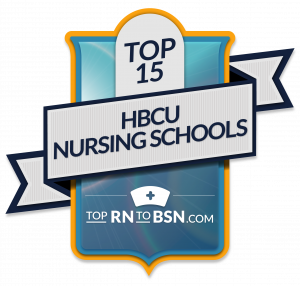
HBCU Nursing Colleges
The best HBCU for nursing school is a Historically Black College and University with some of the best nursing programs in the country! These HBCU Nursing Schools at Historically Black Colleges and Universities are institutions established before 1964 with the principal mission of educating Black Americans. Before the 1960s, HBCU nursing schools were the only places where black nurses could train. Today, nurses from minority backgrounds have all options available to them. Yet, even today, no institutions have a stronger sense of the history of black nursing than the HBCU Nursing Schools.
There are just over one hundred HBCUs operating today. With around 4,000 degree-granting institutions of higher learning in the US, HBCUs represent less than 1% of colleges and universities in the country. Even though these institutions are few, the impact they have is extraordinary. These institutions deserve recognition for their influence on minority education, especially the best HBCU Nursing Programs!
Methodology: Ranking The Best HBCU Nursing Schools and Colleges
Which HBCU is best for nursing? To rank the Top 15 HBCU Nursing Schools, TopRNtoBSN editors first looked for HBCUs with nursing programs. Then, we ranked them according to three criteria Cost, Reputation, and Alumni Salary. Finally, the TopRNtoBSN editors evaluated data collected from IPEDS, College Scorecard, and Niche.
These 15 highest-scoring HBCU nursing colleges, schools, and universities provide students with a thorough education in nursing care. With degrees that combine affordable tuition rates and job-market reputability, nursing students can expect a solid return on their educational investment.
1. Howard University
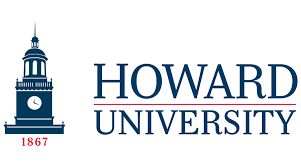
The College of Nursing and Allied Health Sciences at Howard University has the best HBCU nursing program. In true HBCU spirit, the school focuses on educating diverse populations and individuals from under-represented groups. Howard University offers three Bachelor of Science in Nursing (BSN) paths for undergraduates. The school offers a traditional BSN, an LPN-BSN program, and an RN-BNS program for nurses already holding a current license.
The Howard University graduate nursing program offers a Master of Science Nursing (MSN) program with two tracks. Nursing students can choose from a traditional Family Nurse Practitioner (FNP) track or an online Nurse Educator (NE) track. In addition to offering multiple programs, the school lives its motto of Truth and Service by teaching community service and encouraging research.
Howard University generates the most African American post-graduate recipients of any university in the country. It is widely considered the most comprehensive HBCU in the nation, with more than 120-degree programs. The private HBCU established in 1867 sits on a four-hundred-acre campus in the heart of the nation’s capital of Washington DC. The Commission on Collegiate Nursing Education (CCNE) has accredited the Howard University nursing programs.
Program Accreditation: CCNE
Cost: $$$$$
More: Visit the school for more about its best HBCU nursing programs.
2. North Carolina A&T State University

The School of Nursing at North Carolina A&T State University has one of the best HBCUs nursing schools in North Carolina and the US. Through its College of Health and Human Sciences School of Nursing, NCA&T has a Bachelor of Science in Nursing with three different completion paths. There is a traditional BSN for first-year students, an Accelerated BSN path (ABSN) for students earning a nursing degree as a second bachelor’s degree, and an RN to BSN for registered nurses.
North Carolina Agricultural and Technical State University is an HBCU established in 1891. The school is a member of the University of North Carolina multi-campus public university system. With a campus in the city of Greensboro, NC, A&T enrolls around 15,000 “Aggies” every year. The Accreditation Commission for Education in Nursing (ACEN) accredits the A&T nursing program.
Program Accreditation: ACEN
Cost: $$$$$
More: Visit the school for more about its HBCU nursing programs.
Related: 10 Best Nursing Schools in Charlotte NC
3. Florida A&M University

The School Of Nursing at Florida A&M University is home to one of the top HBCU nursing schools in the country. Florida A&M is the state’s first black nursing school and offers undergraduate, graduate, and post-graduate degrees in nursing. There are also accelerated degree programs for Registered Nurses with an unencumbered license.
The FAMU’s School of Nursing prepares students to enter the nursing workforce in various clinical settings. Florida A&M is competitive. The school admits only fifty nursing students each semester to the nursing program. Florida A&M University was founded in 1887 and is a member school of the Thurgood Marshall Scholarship Fund. A portion of the FAMU campus is a part of the US National Register of Historic Places.
Program Accreditation: ACEN
Cost: $$$$$
More: Visit the school for more about its HBCU nursing programs.
4. Alcorn State University

The Cora S. Balmat School of Nursing at Alcorn State University is one of the top HBCU nursing schools in the country. Alcorn offers degrees from the associate’s level to the doctoral level. The Undergraduate Programs include an Associate of Science in Nursing (ASN) and a Bachelor of Science in Nursing (BSN). Alcorn’s graduate-level nursing programs include a Master of Science in Nursing (MSN) and a Doctor of Nursing Practice (DNP).
Alcorn State’s main campus is in Lorman, Mississippi, about eighty miles south of the Mississippi state capital Jackson. The Nursing School campus is in Natchez, Mississippi. Alcorn University started in 1871 and is the oldest public historically black land-grant institution in the United States. The university is a member school of the Thurgood Marshall College Fund and recognized nationally for its programs in liberal arts, agricultural research, technology, music, and nursing. Furthermore, Alcorn State University has accreditation from the Southern Association of Colleges and Schools Commission on Colleges.
Program Accreditation: ACEN
Cost: $$$$$
More: Visit the school for more about its HBCU nursing programs.
5. Fayetteville State University
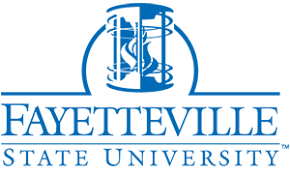
The School of Nursing at Fayetteville State University has one of the best HBCU nursing schools in the US. The school boasts a 100% NCLEX Pass rate for the last three semesters! The UNC-FSU nursing school offers a traditional BSN, an RN to BSN, and an online Master of Science in Nursing (MSN) in Patient Safety and Quality. FSU is the first school in NC to offer a graduate degree pathway with this focus. Another unique partnership offered by the school is Veterans in the Community (VACOM). This program is a collaborative partnership between veterans, the School of Nursing, and Community Partners. Fayetteville is home to Fort Bragg, one of the largest military installations in the world. True to the school’s motto – Deeds not Words – many FSU programs are veteran-friendly. The VACOM program recruits veterans into the undergraduate nursing program and trains them to work with veteran patient populations.
Fayetteville State University (FSU) is the second-oldest school in the North Carolina University System. The public institution was established in 1867 in the North Carolina city of Fayetteville and offers over sixty programs and degrees at the undergraduate and graduate levels.
Program Accreditation: CCNE
Cost: $$$$$
More: Visit the school for more about its HBCU nursing programs.
6. Prairie View A&M University

With programs at the undergraduate and graduate level, the Prairie View A&M University College of Nursing is one of the best HBCU nursing schools in the nation. Students can complete the Prairie View traditional BSN in four and a half years. Graduates enter many different clinical settings or continue and earn a graduate degree. Nurses currently licensed have the option of earning a Bachelor of Science in Nursing (BSN) through an online completion path. Licensed Vocational Nurses (LVNs) or practical nurses can choose the LVN-BSN program. Registered Nurses can complete the online RN to BSN program. Graduate nursing degrees offered at Prairie View include the Master of Science Degree with three concentrations. Students can choose a Family Nurse Practitioner path, a Nurse Education path, or a Nurse Administration path. In addition, the school offers a Doctor of Nursing Practice (DNP) program.
Prairie View A&M University was established in 1876 and is Texas’s second-oldest higher learning institute. Prairie View is located northwest of Houston and is considered a historically black university (HBCU). The school is a member of the Thurgood Marshall College Fund.
Program Accreditation: CCNE
Cost: $$$$$
More: Visit the school for more about its HBCU nursing programs.
10 Best Nursing Schools in Houston
7. Winston-Salem State University
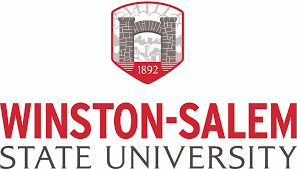
Another one of the top HBCU nursing schools is Winston-Salem State University. The WSSU nursing program offers comprehensive nursing education experience rooted in HBCU nursing traditions through its School of Health Sciences. The Winston Salem State undergraduate nursing degrees include a traditional and accelerated BSN. In addition, there are three programs for students with health care experience to earn a BSN. These advanced standing paths are the LPN-BSN, RN to BSN, and Paramedic-BSN programs. With working nurses and paramedics in mind, these paths offer medical workers a convenient and affordable path toward career advancement. Winston Salem State also has two graduate certificate programs – the Family Nurse Practitioner (FNP) Certificate and the online Advanced Nurse Educator (ANE) Certificate. In addition, a Doctor of Nursing Practice (DNP) degree program is available with a BSN-DNP path or an MSN-DNP path.
This HBCU was established in 1892 and currently enrolls over 5,000 students. The university’s 117-acre urban campus is in the North Carolina city of Winston-Salem. WSSU is a member school of the Thurgood Marshall College Fund. Winston-Salem State University has accreditation from the Southern Association of Colleges and Schools Commission on Colleges (SACSCC). In addition, the nursing programs have accreditation from the Commission of Collegiate Nursing Education (CCNE).
Program Accreditation: CCNE
Cost: $$$$$
More: Visit the school for more about its HBCU nursing programs.
8. Coppin State University
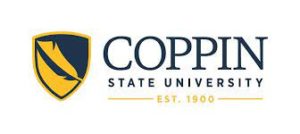
The Fuld School of Nursing at Coppin State University is one of the nation’s top HBCU nursing colleges. Coppin State offers undergraduate and graduate-level nursing degrees. In addition, the school offers multiple paths to a BSN, a master’s degree, graduate certificate programs, and doctoral degrees in nursing. The nursing curriculum places emphasizes preparing nurses to provide high-quality care to vulnerable and underserved urban communities.
Coppin State sits on a fifty-two-acre campus in Charm City, Maryland. This culturally rich HBCU university was established in 1900 and is a member school of the Thurgood Marshall College Fund. The school is accredited by the Middle States Association of Colleges and Schools. In addition, the nursing programs have accreditation from the Commission on Collegiate Nursing Education (CCNE).
Program Accreditation: CCNE
Cost: $$$$$
More: Visit the school for more about its HBCU nursing programs.
9. Kentucky State University
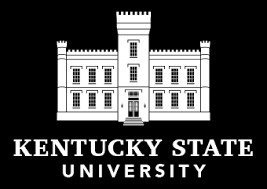
The School of Nursing and Health Sciences at Kentucky State University School has one of the top HBCU nursing colleges. KSU offers several nursing degree options. These include ACEN-accredited Associate of Applied Sciences in Nursing, a Bachelor of Science in Nursing (BSN), an RN to BSN in Nursing, and also a Doctor of Nursing Practice (DNP). Furthermore, students can attend the Kentucky State RN to BSN and BSN-DNP programs entirely online.
Kentucky State University is a public institution founded in 1886 with an annual enrollment of approximately 2,300 students. The HBCU has an 882-acre campus in Frankfort that also includes 311 acres for agricultural research and 306 acres devoted to environmental education. Additionally, the Accreditation Commission for Education in Nursing (ACEN) has accredited KSU’s nursing programs. However, KSU is not just home to one of the best HBCU nursing schools. It is also home to the Biosecurity Research Institute.
Program Accreditation: ACEN
Cost: $$$$$
More: Visit the school for more about its HBCU nursing programs.
10. Bowie State University
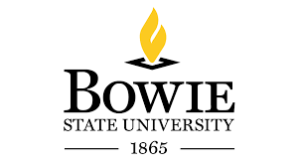
The Department of Nursing in the College Of Professional Studies at Bowie State University is one of the top HBCU nursing schools in the nation. Nursing Students prepare for the in-demand nursing career, gaining practical experience in BSU’s cutting-edge simulation lab and Traditional nursing programs generally three years long. At the same time, students in one of the best HBCU accelerated nursing programs finish in approximately 18 months—internships in various nursing-related fields. In addition, the degree prepares graduates to address patient care as it evolves through a lifespan.
Bowie State University is a Thurgood Marshall College Fund member and the state’s oldest historically black university (HBCU) founded in 1865. The Accreditation Commission for Education in Nursing (ACEN) has accredited the Bowie State School of Nursing.
Program Accreditation: ACEN
Cost: $$$$$
More: Visit the school for more about its HBCU nursing programs.
11. Morgan State University

Through its School of Community Health and Policy, Morgan State University has one of the best HBCU nursing programs. This HBCU, located in the urban center of Baltimore, offers nursing degrees at the undergraduate and graduate levels. Morgan State has a traditional BSN that accepts first-year students and transfer students. At the graduate level, the school has an MSN with two areas of emphasis in Nurse Educator (NE) or Leadership and Management in Nursing. In addition, the MSU graduate nursing program includes a Doctor of Philosophy degree (Ph.D.). This degree prepares students to become nurse educators, nurse administrators, or conduct research.
Morgan State was founded in 1867 and today offers more than 117 academic programs. Morgan State University has accreditation from the Middle States Commission on Higher Education (MSCHE). In addition, the nursing programs have received accreditation from the Commission on Collegiate Nursing Education (CCNE).
Program Accreditation: CCNE
Cost: $$$$$
More: Visit the school
Best Nursing Schools in Baltimore
12. Norfolk State University
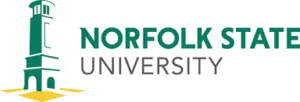
The Department of Nursing and Allied Health at Norfolk State University is home to one of the best HBCU nursing programs in the country. Norfolk State has been educating nursing students on culturally competent health care services for over sixty years. The school offers a traditional BSN and an RN to BSN track. The RN to BSN program is delivered asynchronously online and caters to working nurses. In addition, Norfolk State maintains community affiliates where students can do their clinical experiences. These agencies include area hospitals and medical centers.
Located in Norfolk, Virginia’s coastal city, this public HBCU boasts a 134-acre urban campus and enrolls approximately 5,500 students annually. Norfolk State opened in 1935, and the university has accreditation from the Southern Association of Colleges and Schools Commission on Colleges (SACSCOC). In addition, NSU is a member-school of the Virginia High-Tech Partnership and the Thurgood Marshall College Fund.
Program Accreditation: ACEN
Cost: $$$$$
More: Visit the school
13. Delaware State University

Through the College of Health and Behavioral Science, Delaware State University has one of the best HBCU nursing programs. DSU offers a Bachelor of Science (BSN) degree for working nurses and also a BSN new high school graduates. The baccalaureate nursing degree takes four years to complete. In addition to the classwork, a clinical practice component gives hands-on experience to students. Furthermore, HBCUs with nursing programs, like DSU, offer nursing programs that reflect ethical practices, integrity, and also advocacy for diverse populations.
The Delaware General Assembly founded the state’s only HBCU, Delaware State University, in 1891. The school’s campus is in Delaware’s state capital of Dover. The Accreditation Commission for Education in Nursing (ACEN) has accredited Delaware State University’s nursing program. Additionally, the Delaware Board of Nursing has approved the DSW’s nursing program.
Program Accreditation: ACEN
Cost: $$$$$
More: Visit the school
14. Hampton University

One of the best HBCU nursing programs in Virginia is at the Hampton University School of Nursing. For over a century, the Virginia HBCU has prepared nurses to serve their communities. Hampton University has two Virginia campuses and an online campus called Hampton U Online. The school’s main campus is in the city of Hampton, and a secondary campus is in Virginia Beach. HU offers a traditional BSN program at the main campus. However, students can also complete an accelerated or part-time RN to BSN through Hampton U Online. Additionally, the university offers a Master of Science in Nursing (MSN) for students interested in working in Nursing Administration, Nursing Education, or becoming a Nurse Practitioner (NP). Advanced students can also complete the online Doctor of Philosophy in Nursing (Ph.D.).
Hampton University is a private HBCU founded in 1868. Today, Hampton offers fifty baccalaureate programs and also over thirty graduate programs. In addition, the school is home to the Hampton University Museum, the oldest museum of the African diaspora in the United States.
Program Accreditation: CCNE
Cost: $$$$$
More: Visit the school for more about its nursing and allied health programs.
15. Southern University and A&M College

The College of Nursing at Southern University A&M has one of Louisiana’s best HBCU nursing programs and the country. Southern A&M is the largest HBCU in Louisiana, and the nursing program offers undergraduate and also graduate-level nursing degrees. First, SUAM offers a traditional Bachelor of Science in Nursing (BSN). In addition, students can earn a Master of Science in Nursing (MSN) with a choice of three plans of study. The MSN with a specialty in Family Health Nursing plan is the Nurse Practitioner path. Students can also choose a Nurse Administrator or Nurse Educator curriculum plan. Finally, Southern offers two doctoral degrees. Additionally, students can choose from the research-oriented Doctor of Philosophy in Nursing (Ph.D.) degree or the practice-focused Doctor of Nursing Practice (DNP) degree.
Southern University A&M is a public HBCU and the flagship institution of the Southern University System. It opened in 1880, and the College of Nursing began its first class in 1986. Southern boasts both a 512-acre urban campus in Baton Rouge and a 372-acre agricultural station just outside of town. The university is also a member school of the Thurgood Marshall College Fund. And, the Commission on Collegiate Nursing Education (CCNE) has accredited the Southern nursing program.
Program Accreditation: CCNE
Cost: $$$$$
More: Visit the school for more about its nursing and health sciences programs.
Why Go to Nursing School at an HBCU?
Attending a nursing school at an HBCU can provide students with access to a supportive and diverse learning environment. HBCUs have a long history of providing quality education to students from many different backgrounds and providing the necessary resources to help them succeed. The faculty and staff at an HBCU are typically invested in the success of their students, which can be beneficial for those looking to pursue a career in nursing.
Additionally, historically black colleges and universities are often well-connected with local hospitals and healthcare organizations, offering students opportunities to gain real-world experience through internships and clinical rotations. The HBCU student support infrastructure supports students from diverse backgrounds.
Where Do HBCU Nursing Schools Come From?
Cheyney University of Pennsylvania opened in 1837 and is the nation’s first Historically Black College and University (HBCU). Other early HBCUs were founded before 1961. These were schools in Ohio and also Pennsylvania that provided black students with education and training. When these students could not attend established colleges and universities, these schools offered a path to learning a trade or becoming a teacher. Between 1861 and 1900, more than ninety additional HBCUs opened.
In 1965 the US Congress clearly defined the term HBCU. Then, in November of that year, they enacted Title III of the Higher Education Act of 1965. The Act defined a Historically Black College or University (HBCU) as a school of higher learning accredited and established before 1964 and whose principal mission was the education of Black Americans.
Do HBCU Nursing Schools Only Accept Black Students?
No. All qualifying students can attend historically black colleges and universities. HBCUs were initially founded to educate students who could not access other education systems. The schools, although historically black, have always welcomed qualifying students from any background. The HBCU student support infrastructure is increasingly attractive to non-black students. Students that are low-income, first-generation, or nontraditional also benefit from the HCBU structure.
As a result, HBCUs are increasingly enrolling more non-black students. In 1976 all HBCUs enrolled approximately 15% of non-black students. By 2019, this number increased to around 24%. Therefore, it is not surprising that these inclusive schools are attracting new students. These HBCUs designed to uplift and empower African-American students have become an access point for other students disenfranchised by society. HBCU Nursing colleges have some of the best nursing programs in the country!
Related:
- Nursing Diversity
- 10 Best Orlando Florida Nursing Schools
- Top 10 Minority Nursing Scholarships
- Ultimate Guide for Black Nurses and Nursing Students
- The Second Career Nurse
- 10 Best Paramedic to RN Bridge Program Online
- What Can You Do With A Doctorate In Nursing?
- 20 Best Travel Nursing Agencies
- 10 Best Atlanta Georgia Nursing Schools
- 20 Top CRNA Schools for Nurse Anesthetists
- 25 Best Nurse Residency Programs Post-BSN
- 15 Best Online Accelerated BSN Programs






